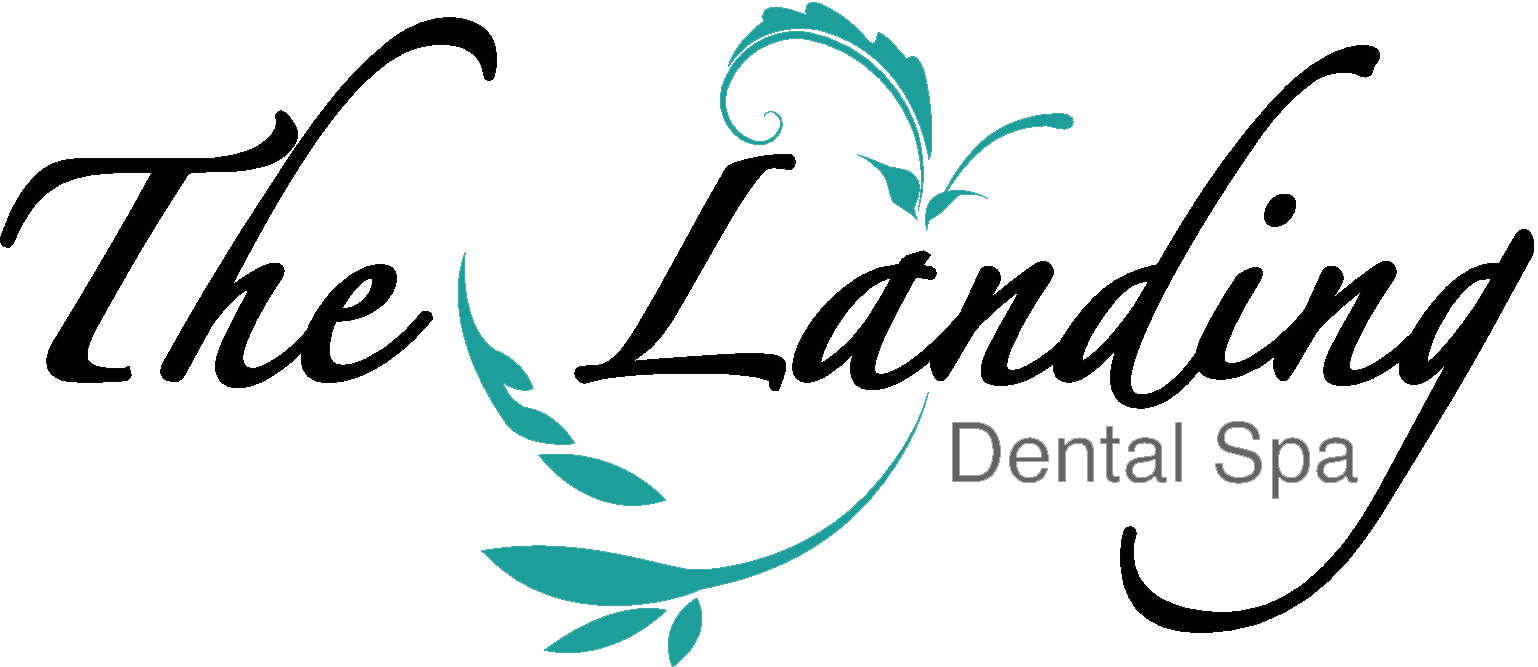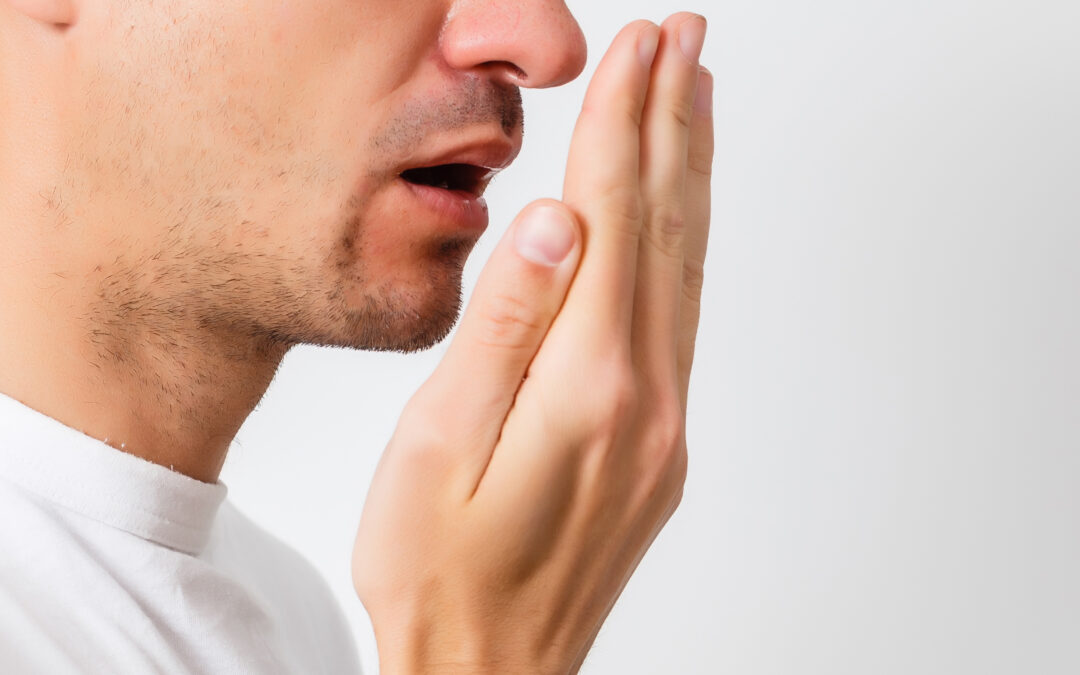Almost everyone experiences bad breath, but it is a daily concern and an often embarrassing problem for some people. Bad breath, medically referred to as halitosis, can result from the foods or beverages you consume, poor dental hygiene habits or could even be a sign of an underlying health problem.
According to the American Dental Association, 50 percent of adults experience bad breath, or halitosis, at some point in their lives. Still, in many cases, it can be improved with proper dental hygiene practices. Keep reading to learn more about the causes of bad breath and how to prevent it.
Symptoms of Bad Breath
In addition to a foul odor in your mouth, you may also notice a bad taste in your mouth. If the foul smell and taste do not disappear after brushing and flossing your teeth and using mouthwash, these symptoms may be due to an underlying health condition. If you are unsure if you have bad breath, ask a family member or friend to confirm any concerns or suspicions you may have.
Causes of Bad Breath
There are many possible causes as to why someone may be experiencing bad breath. While many of these causes are harmless, be aware that some could suggest more serious health issues.
Bacteria
Hundreds of types of bacteria naturally live and grow in your mouth. After you eat, these bacteria feed on the food particles left behind in your mouth. This decaying process results in a foul-smelling waste product that can cause bad breath. Regularly brushing and flossing your teeth helps to remove this bacteria before it decays.
Dry Mouth
Dry mouth can occur if your mouth does not make enough saliva. Saliva helps to cleanse your mouth and remove the particles that cause breath odor. Dry mouth can be caused by certain medications, a salivary gland condition or breathing through your mouth when awake or sleeping.
Foods and Beverages
When you eat certain foods like garlic, onions, spices or other foods with strong odors, your stomach absorbs the oils from those foods during the digestion process. These oils pass through your bloodstream and travel to your lungs, where they can produce an odor when you exhale for up to 72 hours. Strong beverages, like coffee, can also cause bad breath. Breath odor is caused by the coffee sticking to your tongue. Avoid coffee breath by eating foods before you drink coffee. Additionally, when you brush your teeth, don’t forget to brush your tongue! If you would like to learn more about the oral health effects of coffee, check out our blog, Coffee Drinkers: How to Take Preventive Measures When Drinking Coffee.
Gum Disease
A constant bad taste in your mouth or chronic bad breath can be a warning sign of gum disease. Gum disease occurs when plaque is not promptly removed from your teeth. This build-up of plaque results from a lack of cleaning, brushing and flossing, and if it is not removed, the plaque can harden and form into tartar. Tartar can only be removed by professional cleaning. To learn more about gum disease, check out our blog, Gum Disease: Causes, Symptoms, Treatment and Prevention.
Medical Conditions
Mouth infections can cause breath odor. However, suppose your dentist has ruled out other common causes. In that case, your bad breath may be the result of a medical condition or health problems such as a sinus infection, gastric reflux, diabetes, liver or kidney disease.If this is the case, you should see your medical provider.
Medications
Some medications contribute to dry mouth, which can lead to bad breath. Other medications release chemicals when they are broken down in the body. These chemicals can be carried to the lungs where they can cause bad breath.
Smoking and Tobacco
Smoking and tobacco use puts you at risk for a variety of health problems, but did you know that these dangerous habits can cause many oral health problems too? Smokers often experience yellowing teeth, bad breath and dry mouth. Tobacco users can experience irritated gum tissue and even gum disease.
Preventing Bad Breath
There are many things you can do to help prevent bad breath. Check out these tips from the American Dental Association to improve your breath odor:
- Brush and Floss Regularly: Brush twice a day and clean between your teeth with floss to remove the bacteria that cause bad breath.
- Use Mouthwash: Over-the-counter mouthwash can neutralize or temporarily mask bad breath. It can also help kill the bacteria that cause bad breath.
- Clean Your Dentures: Take out removable dentures at night and clean them thoroughly before using them again.
- Increase Saliva Production: To increase saliva production, eat healthy foods that require a lot of chewing. Chewing on sugar-free gum and sucking on sugar-free candies also can help to increase saliva production. In more serious cases, your dentist may recommend that you use artificial saliva.
- Quit Smoking: Giving up smoking is an excellent health choice for a variety of different reasons, including having better breath.
Worried About Bad Breath? Visit the Landing Dental Spa
If you’re worried about what’s causing your bad breath, make an appointment to see your dentist. At The Landing Dental Spa, we believe that regular dental exams are an essential part of preventative dental care. These exams allow us to ask you questions and check for and detect any problems, such as gum disease or dry mouth before they become more serious health issues.
If you would like to make an appointment with us, please give us a call at 304-594-2200 or use our online contact form.
References:
Bad breath – Symptoms and causes


Recent Comments